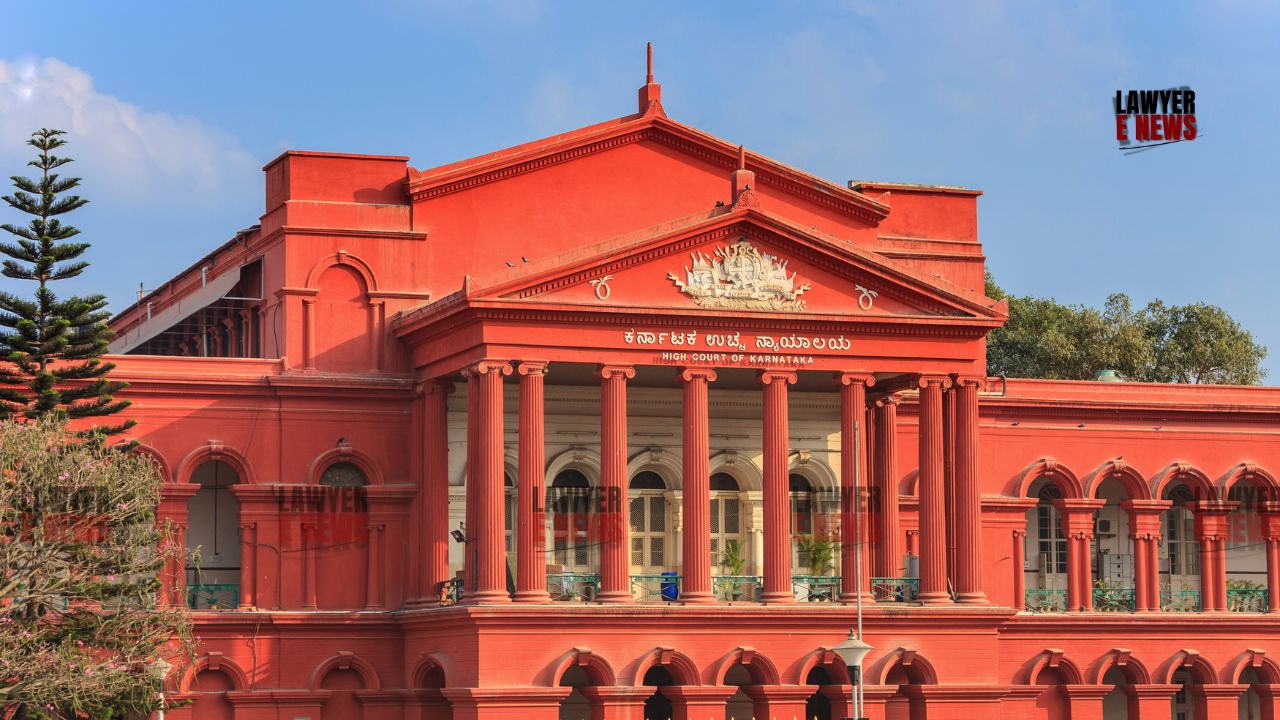-
by Admin
15 February 2026 5:35 AM



The Karnataka High Court has upheld an interim order restraining the alienation of disputed properties, confirming that a purchaser is bound by the arbitration clause in an agreement signed by their vendor. The judgment, delivered by a bench comprising Justices Anu Sivaraman and Anant Ramanath Hegde, underscores the applicability of the "lis pendens" principle and clarifies the rights and obligations of non-signatories to arbitration agreements under the Arbitration and Conciliation Act, 1996.
The appellant, M/S Devtree Corp. LLP, challenged an interim order from the V Additional District Judge, Bengaluru Rural, which restrained them from alienating certain properties. The properties were initially part of a sale agreement dated October 16, 2020, between the respondent, M/S Bhumika North Gardenia, and the original owners. The agreement contained an arbitration clause. After disputes arose, the original owners canceled the agreement and returned the advance payment. Subsequently, the appellant purchased the properties during the pendency of a Section 9 application filed by the respondent for interim measures.
The High Court considered whether the appellant, who was not a party to the original arbitration agreement but purchased the property from those who were, is bound by the arbitration clause. The court ruled affirmatively, citing the definition of “party” under Section 2(1)(h) read with Section 7 of the Arbitration and Conciliation Act, 1996. The court stated, “The appellant company being a purchaser from a party to the arbitration agreement steps into the shoes of the vendor and is bound by the arbitration clause.”
Addressing the principle of “lis pendens,” the court highlighted its relevance to Section 9 proceedings. The court noted, “The doctrine of lis pendens applies to proceedings under Section 9 of the Arbitration Act if such proceedings involve a direct or substantial question relating to an immovable property.” The judgment reinforced that any transfer during the pendency of such proceedings would be subject to the outcome of the case, thereby binding the appellant to the existing arbitration process.
The court extensively discussed the implications of the Cox and Kings Limited v. SAP India Private Limited and Another judgment, which clarified that non-signatories could be bound by arbitration agreements if they claim through or under a party to the agreement. “The conduct of a non-signatory party could be an indicator of their consent to be bound by the arbitration agreement,” the court remarked, affirming the derivative rights and obligations.
Justice Anant Ramanath Hegde emphasized, “The appellant being the pendente lite purchaser during Section 9 proceeding cannot be permitted to say the award does not bind him. Accepting such contention would defeat the very object behind Section 8 of the Arbitration Act.”
The Karnataka High Court’s judgment reinforces the binding nature of arbitration clauses on non-signatories who derive their rights through parties to the original agreement. This decision underscores the importance of the “lis pendens” principle and the comprehensive reach of the Arbitration and Conciliation Act, 1996. By affirming the lower court’s interim order, the ruling sends a clear message about the obligations of purchasers in ongoing legal disputes and the enduring validity of arbitration agreements.
Date of Decision: July 24, 2024
M/S Devtree Corp. LLP vs. M/S Bhumika North Gardenia
